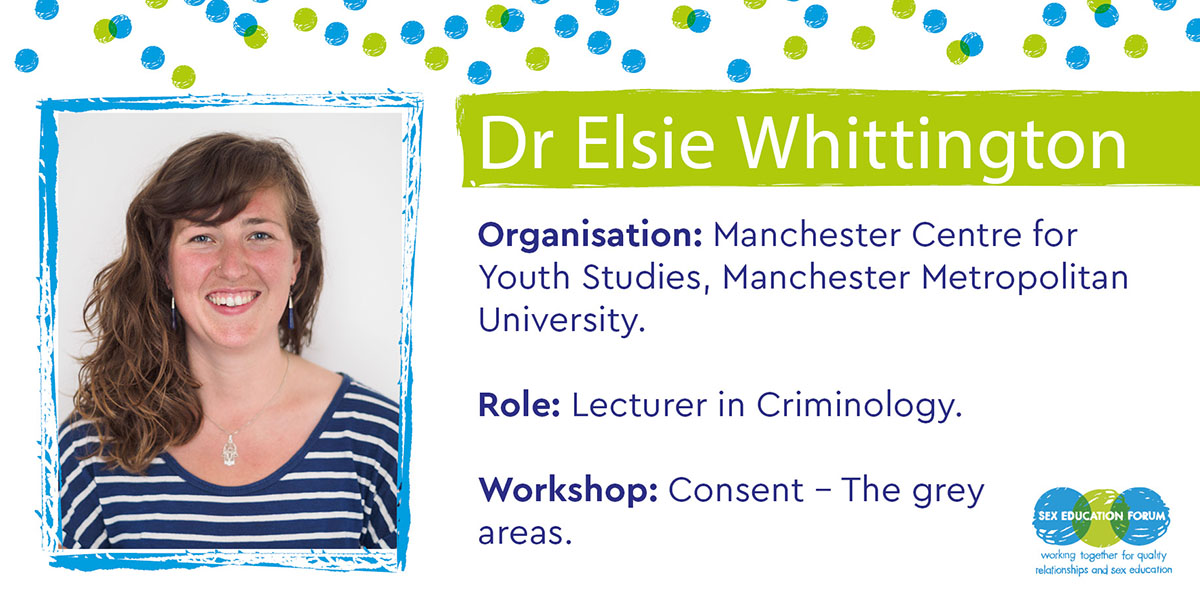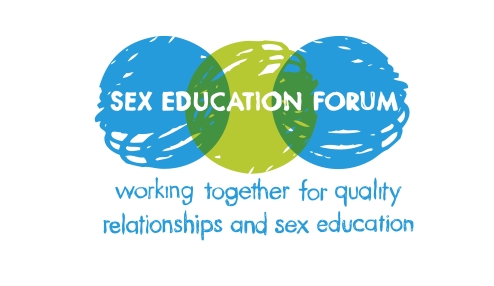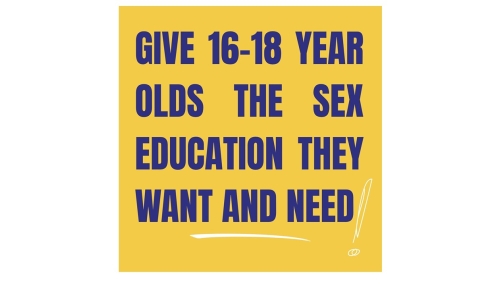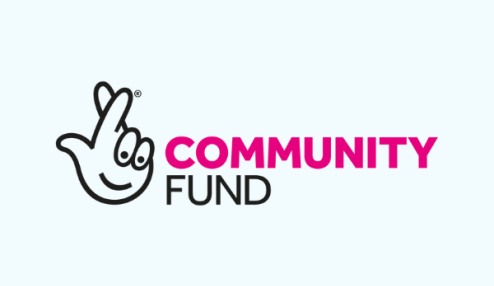When it comes to consent, what are the grey areas? And when should we start discussing consent with children and young people?
Dr Elsie Whittington lectures and researches at Manchester Centre for Youth Studies.
Her most recent work has focused on developing an expanded understanding of sexual consent and thinking about how we can teach and talk about the ‘grey areas’ and ‘awkward bits’ of sexual negotiation in educational settings.
Book our Countdown to Statutory RSE - North East conference - and you’ll be attend Elsie’s workshop on ‘Consent – the grey areas?’
 Read on for Elsie’s experience of teaching consent in schools. Can you give an example of a ‘grey area’ when it comes to consent?
Read on for Elsie’s experience of teaching consent in schools. Can you give an example of a ‘grey area’ when it comes to consent?
Legally there are no grey areas, but people struggle to label and talk about experiences in a black and white way so we need to create space for this conversation.
Very often people experience violation or boundary crossing that does not feel ‘bad enough’ – therefore we need to talk about ‘grey areas’ and help people to see how or why it’s not a grey as they think and consider ways to make things more ethical and positive in the future.
What questions from young people regarding consent have most surprised you?
I think I am still surprised by the constant theme of legality in questions. It feels to me like many younger people, especially the young men I have worked with, are keen to know what actions and circumstances might be illegal.
There is a lot of fear, and therefore silence, about getting it wrong. This means I am always surprised and grateful when someone asks a question where we can acknowledge fears about legality but move on to focus on ethics and possibilities for positive and pleasurable relationships and sexual encounters
What is the right age to talk about consent with children and young people?
I think we need to start talking about consent, boundaries and that it’s ok to say ‘no’ to things, as soon as children begin actively communicating verbally and non-verbally.
In primary schools we need to introduce and reinforce that saying no is okay and that being respectful of other people’s boundaries is important.
As we move into secondary school the consent conversation needs to focus more on intimate and romantic relationships and create space for thinking critically about what consent means and how to put it into practice (and practice it) in different situations.
Do adults have misconceptions about what constitutes consent?
Absolutely. I think everyone has a good idea of what consent means in simple terms. But we know, that regardless of age, people are not well practiced at doing explicit, communicative consent. For me, consent is an awkward, dynamic and ongoing process throughout a relationship or sexual encounter. It breaks the assumed flow or order of businesses and means that we cannot assume that we know what others want. This is uncomfortable for adults and younger people. But I think with time and experience it can become easier and less awkward and result in better experiences (which includes not having sex!) in the longer run.
We’re all a product of a society where women’s pleasures and many people’s experiences of violation are under prioritised and often dismissed. So when we’re talking about consent we need to think about possibilities for pleasure, and enjoyment that don’t follow mainstream scripts.
Book our Countdown to Statutory RSE - North East conference on 26 March 2020 now.




Share